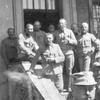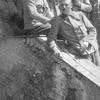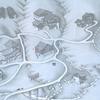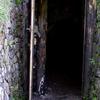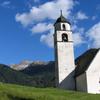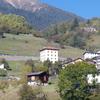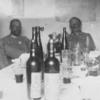Robert Musil in valle dei Mocheni
The Valle dei Mocheni deeply impresses Musil: the literary route "Musil en Berstol, Palù dei Mòcheni" takes everybody to the inspiring places of the German author

Robert Musil (Klagenfurt, 1880 - Geneva, 1942), being second lieutenant and then lieutenant, in September 1914 was sent to the southern frontline, initially around Stelvio, then in Levico. The day before Italy went to war, on the 23rd of May 1915 he was posted to the sector of Palù dei Mocheni, where he stayed till August.
During Autumn 1915 he was involved with command functions at Forte delle Benne, next to Levico Lake, and at Forte di Tenna, near Caldonazzo Lake. Later on he went to various places of the frontline, from the Soča river to Ampezzo and then, again, in Valsugana, till his recovery at the military hospital of Prague, where he met Franz Kafka (who wasn't famous at that time). From May 1916 to April 1917 he was director, in Bolzano, of the military magazine "Tiroler Soldatenzeitung". Till the end of 1917 he was in Postumia and, in 1918, he took part in the editorial staff of the military magazine "Heimat" at the Kriegspressquartier of Vienna.
The Valle dei Mocheni impressed Musil with all its peculiar features: the landscapes of the mountain peaks, the fields and woods, its inhabitants and their daily activities, their homes and languages, the mining history which has marked both places and legends. From the reworked version and examinations of his Diaries he wrote "Grigia", a short story set in Palù di Fersina and published in 1921.
The author caught a glimpse of the valley from Pergine and, since that moment, it appeared as the right place for ancientness, isolation and peculiarty in its landscapes, an enchanted world: in a word, something that he had never experienced in his life. The dual appeal of the valley, its "genius loci", is not just only marvelous and a fable, but it is, first of all, witchcraft and magic which can take people to confusion and sense of loss, as it happens to the main character of his short story. The valley is "a very interesting place for the writer": in 3 months he overcame a deep spiritual and creative crisis, and got back to his literary production: it was a turning point for his works.
Literary route "Musil en Bernstol, Palù dei Mocheni"
map Musil en Bersntol.pdf 5,95 MB
The percorso letterario Musil en Bersntol retraces the most significant places which are related to both the presence and works of the writer. It is possible to deepen the topic thanks to the support of a catalogue-guide with a critical apparatus which includes some quotes by Musil.
The route is free and permanent, and it depends on the Istituto Culturale Mocheno, Palù del Fersina/Bernstoler Kulturinstitut, Palai en Bernstol, which promotes events, meetings, annual manifestations related to Musil, mainly during the Summer.
This year, the themes dealt with will be about "Robert Musil and the First World War" and, on the occasion of the manifestations for the centenary, the Musil's route will be completed with other places of Valsugana and nearby area which are linked to the writer’s presence: Pergine, San Cristoforo, Forte di Tenna, Colle delle Benne, Caldonazzo and Levico.
Grigia, the short story in which Musil is inspired by Valle dei Mocheni, is available at the Istituto, with both the original text in German and its Italian translation (with some fragments of the Diaries written in Valle dei Mocheni and some poems written during Summer 1915).
Website: www.bernstol.it
E-mail: kultur@kib.it
Telephone: 0461 55 00 73
Biography
Robert Musil (Klagenfurt, 1880 - Geneva, 1942). After having left the military career, he graduated in engineering and then in philosophy in Berlin.
In 1906 he published, with success, "The Confusions of Young Törless".
In 1911 he married Martha Heimann. They lived for two years in Vienna and then again in Berlin, the two most important cities for him even after the war.
After the play "The Fanatics" and the short story "Grigia" (which is inserted in the "Three Women" collection), during the 30s he published "The Man without Qualities", his great, unfinished novel.
In 1938 he moved to Switzerland in exile.
13/03/2015

